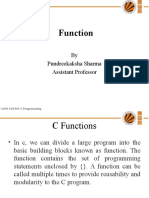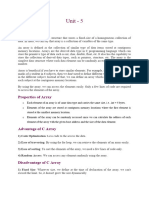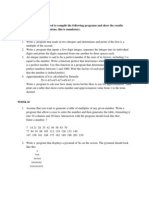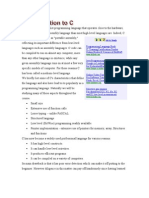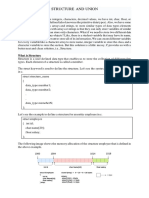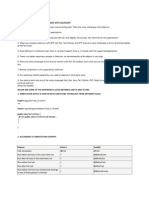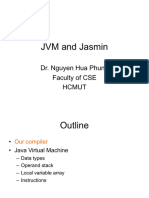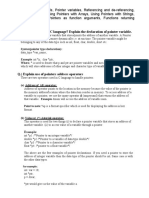0% found this document useful (0 votes)
3 views15 pagesFunctions in C
The document provides an overview of functions in C programming, detailing their definition, advantages, and aspects such as declaration, calling, and definition. It explains the types of functions based on return values and arguments, along with examples demonstrating various function implementations. The main benefits highlighted include code reusability, modularity, and ease of program tracking.
Uploaded by
m40050272Copyright
© © All Rights Reserved
We take content rights seriously. If you suspect this is your content, claim it here.
Available Formats
Download as PPTX, PDF, TXT or read online on Scribd
0% found this document useful (0 votes)
3 views15 pagesFunctions in C
The document provides an overview of functions in C programming, detailing their definition, advantages, and aspects such as declaration, calling, and definition. It explains the types of functions based on return values and arguments, along with examples demonstrating various function implementations. The main benefits highlighted include code reusability, modularity, and ease of program tracking.
Uploaded by
m40050272Copyright
© © All Rights Reserved
We take content rights seriously. If you suspect this is your content, claim it here.
Available Formats
Download as PPTX, PDF, TXT or read online on Scribd
/ 15









